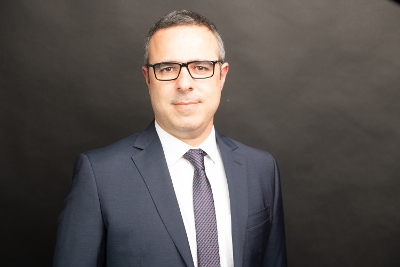How to Legally Prepare for Death and Mental Incapacity
It is said there are just two things in life that are certain: death and taxes. Ignoring them will not prevent their happening. So, perhaps a better option would be to take control of such things as what happens to your property after you die, and make sure your wishes are respected, even if (G-d forbid) you become mentally incapacitated.
Here are a few useful tips:
1. Take a proactive approach
Inaction or indecision are forms of decision. It is the worst form of decision, because it means you let others decide for you. If you do not make a Will, what will take effect after you die will be the default Will in the Law of Inheritance. In most cases, it will not be the optimal way to divide your assets between your heirs. This is especially true for married people, and even more so in cases of divorce. Make a decision to decide for yourself. If you are not sure how to divide your assets or to whom, an experienced lawyer can assist you in making these crucial decisions, in a way that will ensure optimal posthumous distribution of your assets. So stop procrastinating – make the decision today.
2. Make sure your affairs are taken care of and are still relevant
Perhaps you already have a Will. But does it fit your current needs? Sometimes an old Will can do more harm than good. As a rule of thumb, reexamine your Will every five years, or even sooner in case of changes in your marital status, birth (or death) of heirs, and changes in your preferences regarding your possessions or medical decisions.
3. Disinherit the bastard!
Do you have kids? You possibly want to leave everything to them. The good news is that you do not have to. Unlike some other countries, Israel permits each person to bequeath his or her property to whomever they wish. Children do not have a birthright to inherit from their parents. I am not encouraging you to disinherit any of your children, but occasionally it is well justified. In some cases, one may wish to bequeath more to some children because of special needs. Occasionally, a child is estranged or treats you poorly, and maybe you simply love a certain child more. Whatever the reason, a Will is the proper way to reflect this. But please be advised that such a Wills tend to be contested in court. Therefore, it is paramount to ensure that it will be upheld by a judge. For this purpose, your Will should be impeccable, so it could be properly defended in court. It should be accompanied with sufficient evidence to demonstrate to the judge that it manifests the genuine desire of the deceased, and that it is not the result of undue pressure. It is recommended that in such cases, a notarized Will certified by a qualified notary would be prepared. This type of Will is considered the most trustworthy Will and is comparable to a Will declared in front of a judge.
4. Choose your guardian
If you become legally incapacitated, due to accident, illness, or old age, and you did not appoint a designated guardian, the court will do it for you. Typically, these nominations are given to a family member (not necessarily the one you would have preferred) and if you do not have close relatives, the court normally nominates second grade lawyers, the type you would not have chosen for yourself in hindsight. A Continuous Power of Attorney enables you to select someone you trust for this purpose. In fact, you can choose several people for this task. For example, if one of your daughters is a medical doctor and another is in finance, consider making the former your guardian for medical issues and the latter for your finances. Please be advised that only lawyers with special qualifications and training by the Ministry of Justice can prepare a Continuous Power of Attorney, which is the better alternative to having a court second-guessing your wishes.
5. Preserve your autonomy
Many of us want certainty. Death and end of life concerns rattle the core of our need for certainty. After all, who really knows what happens after we die, and furthermore, no one knows when he will die. In any instant, an accident might occur, some catastrophe, an illness, or some other unexpected tragedy. The only way to legally prepare, and not letting these important decisions be made by others or by default, is to ensure you are making your own decisions for yourself. Although, we are all going to die, most of us are reluctant to plan for this event, and even more so when it comes to scenarios of mental or physical incompetence. Ignoring the fact that we are going to die, or that we may become incapacitated, will not make the issues disappear. Alternatively, you can take control.
For information and initial complementary advice contact:
Dr. Guy Carmi
email:This email address is being protected from spambots. You need JavaScript enabled to view it.
Tel:03-9111034








Comments